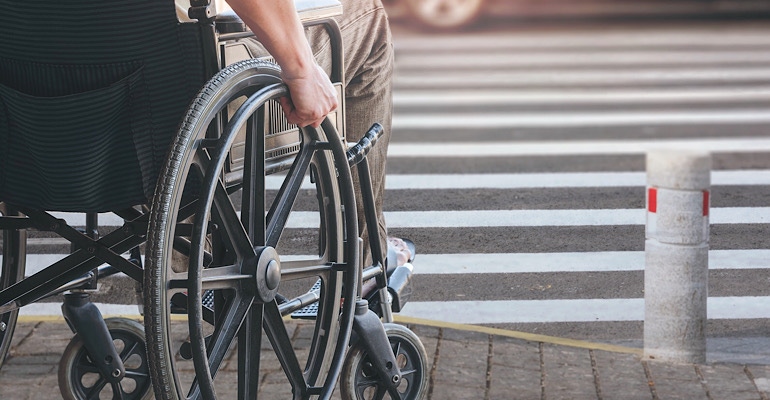Are Big Changes in Store for Mobility Devices?
The Centers for Medicare & Medicaid Services are mulling over a proposed benefit expansion for certain mobility devices.

Karen Young
The Centers for Medicare & Medicaid Services (CMS) received pages of responses after opening for public comment its proposed benefit expansion for certain mobility devices and releasing its proposed National Coverage Determination (NCD) decision.
The 30-day comment period closed on March 17. The agency received 2,130 comments.
“[This] proposal promotes a first-of-its-kind benefit expansion providing people with Medicare additional tools to improve their lives,” said CMS Administrator Chiquita Brooks-LaSure.
A CMS spokesperson said, “CMS uses the initial public comments to inform its proposed decision,” adding, “CMS responds in detail to the public comments on a proposed decision when issuing the final decision memorandum.”
The NCD would cover Group 3 power wheelchairs, which are designed for people with Medicare who have “the most severe disabilities,” according to CMS. The specific improvement would call for power seat elevation.
According to a CMS news release, “CMS follows a long-standing process established by Congress to determine whether a medical item or service can be covered nationally by Medicare, including when an item is reasonable and necessary for the diagnosis of and/or treatment of an illness or injury.”
“[The] proposed NCD follows an evidence-based clinical analysis CMS initiated in August 2022 to examine whether the use of power set elevation equipment on power wheelchairs: 1) falls within a Medicare benefit category, and 2) if yes, whether it is reasonable and necessary,” according to the release.
CMS will issue its final decision memorandum, at which point all the comments will be addressed individually, according to the agency.
The American Occupational Therapy Association was among the groups that submitted comments to CMS.
Many of the responses received by CMS to this NCS addressed the specific need for power seat elevation equipment in use with transferring from the wheelchair to other surfaces.
The American Occupational Therapy Association (AOTA) was among the groups that submitted comments to CMS. AOTA is the national professional association representing the interests of more than 213,000 occupational therapists, OT assistants, and students of occupational therapy.
Julie Lenhardt, AOTA Manager, Reimbursement and Regulatory Policy, wrote, “AOTA continues to urge CMS to recognize that functional mobility is an activity of daily living: the need (and coverage) for an MAE should not be linked to the ability to perform activities of daily living (ADLs) or have them performed by a caretaker.”
Lenhardt continued, by explaining that “Individuals can work, cook, dress, and perform daily hygiene tasks, often without any other assistance, if they are able to use seat elevation systems as an accessory.”
Another comment came from a physical therapist with a home care services agency writing, “All power chair patients I have worked with had transfer issues.” This act of transferring patients from the chair to other surfaces often creates strain for both patient and caregiver, many comments noted.
About the Author(s)
You May Also Like



.png?width=300&auto=webp&quality=80&disable=upscale)
